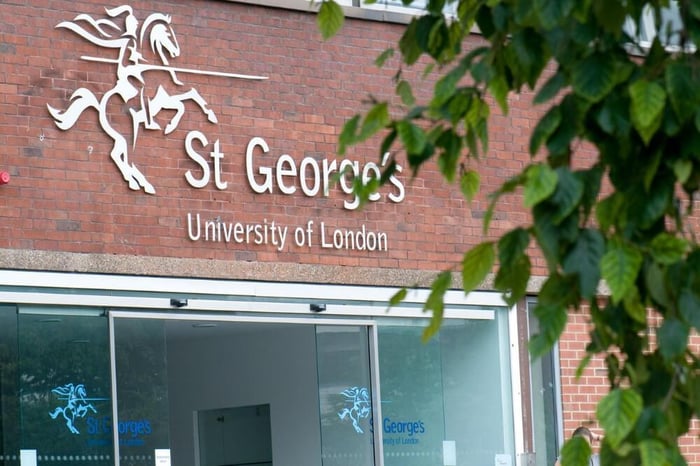
How to Prepare for Medical School Interview: The Group Task
You have submitted your medical school application and you have received the desperately awaited email - you have been invited to an interview! Some universities have implemented new and creative interview formats to evaluate you though, so don’t be alarmed if the details read that you will be put through a group task. While not terribly common, this is a unique type of interview for you to showcase your qualities and strengths to an assessor. Here we provide our best tips on how to perform well on interview day if you expect to be given a group task

INTRODUCE YOURSELF AT THE EARLIEST POSSIBILITY
This is an important point to be made for your conduct at the very start of the group task. By ensuring that you have introduced yourself as early in the group as possible, you show several qualities that examiners are likely to be looking for. By doing so, you will show confidence and assertiveness that you are not afraid to take the lead. Doing this will probably also help break the ice, as once you introduce yourself, everyone else will follow, and the group dynamic will immediately become a bit more relaxed and friendly.
LISTEN CAREFULLY
This one should go without saying but is so important that we would like to stress it again. Listen carefully to everything happening around you - to the assessor providing instructions, to the group brainstorming ideas and to any feedback or tips that may be given from the inside or outside the group while the task is carried out. There is nothing worse than missing out on a crucial bit of information that has been provided just a minute earlier or suggesting an idea that has already been discussed and thrown aside by the group because you had not been paying attention.
BE AWARE OF YOUR BODY LANGUAGE
This is a huge one that interviewers will be likely scoring you for and you need to know how to tackle it. You need to be aware not only of what you say but also how you say it and how you act while you aren’t saying anything. Be careful of a few common mistakes people make when they are not aware of how they present themselves in interview settings, namely, being too relaxed (slouching on the chair) or too stiff (having your arms folded across your chest) in their body language.

While the former will suggest that you are finding the task a bit too trivial and unimportant, the latter says that you are not open to the ideas of your peers and that you are unwilling to cooperate. Always remain upright, look people in the eye and show approval of your peers by smiling and/or nodding when they bring forward a helpful suggestion. It’s a good idea to practice your gestures and your body language at home beforehand as if you were at a med school interview.
AGREE ON A LEADER AND DISTRIBUTE THE REST OF THE ROLES EARLY ON
It is important to highlight that becoming the leader in the group is not a guarantee that you will get an offer and equally, it is not necessary for you to become the leader in order to perform well in a group task. Assess the environment around you in the first few minutes of starting your group task and if you feel that people are naturally gravitating around you and your ideas, have the confidence in taking on that role.
If, however, you notice that someone else is slowly emerging as the leader of the group, you would also make a good impression by acknowledging it and accepting another, no less important, role in the group. Say something along the lines of “So, I have noticed that Jane here is doing a great job at managing this conversation going forward, great job, Jane! I’m happy to take on the timekeeper’s role so that we make sure we finish on time, would anybody like to scribe ideas for us?” By doing this, you have accomplished several great things that will surely catch the eye of your assessor.
You have acknowledged someone else’s effort, you have shown initiative in accepting a different role, and you have offered the group another valuable role, which in itself is a good form of managing and including everyone. The leader, timekeeper and scribe role are the three typically necessary roles in a group task, but if instructions say otherwise or you feel the need for introducing another role, feel free to suggest that, too.
ENSURE THAT EVERYBODY’S VOICE IS HEARD
One caveat to look out for whether you become the outspoken leader or not is, to be wary you don’t over-dominate the conversation and ensure everyone has had an equal chance to speak. When faced with a group task, many applicants focus solely on their own performance, but it is important to stress that that can be assessed too by the way you treat your peers and whether you encourage them to speak or take over their opportunities for the sake of standing out. If you notice that somebody is struggling to get a word in, it is your responsibility to call on them and give them an opportunity to share their thoughts with the group. Doing so will show assertiveness and attention to details, qualities of high importance for any aspiring medical student and a good doctor.

DON’T BE AFRAID TO DISAGREE
This is a very important skill to be able to master if you want to perform well at your medicine interview, especially in the context of a group task. If you feel that an inappropriate idea has been suggested that will either take way too long to implement or straight-up deviates from the objectives of the task, you need to be able to voice your concerns and bring up the fact that this might not be the most beneficial thing for the group’s success. It is crucial that you do so in a friendly manner and refrain from any blame or aggression, but still recognising what’s best for the group and having the courage to disagree when things are not going the way they should, is an important skill for any doctor.
Remember that even though you are all competing for the same spots, at this very moment you are teammates and your success as an individual applicant is correlated to your success as a group. Therefore, you want to ensure that the group’s actions reflect your personal opinions on how to handle the problem at hand, and even if they end up not taking the feedback, that you have at least ensured that you have voiced it.
TALK CLEARLY AND EXPLAIN YOURSELF
This one is quite straightforward but very important to keep in mind when you go through the application process, whether the interview involves a group task, a panel conversation or it is the form of mini-interviews. You could have written a brilliant personal statement but if your conversational and social skills are not up to par, that could hamper your success in getting an offer. Make sure that you speak in a loud and clear enough manner for everybody in the group to be able to hear and understand you.
If the task reminds you of something you saw during your work experience in health care or another setting, make sure you mention that - giving examples to contextualise your idea usually helps people understand you better. It can also show your experience and competence, especially if you are able to provide the outcome of that situation and the relevance to the current task. If you are nervous when talking in front of groups of people, running mock interviews with your friends is a good way of practicing your tone, diction and confidence prior to the day. Remember that this is your chance to show why you would be a good fit for the school of medicine of your choice, so even if you are naturally shy or introverted, you need to find a way to speak up, as you will not get any marks if you don’t say anything.
We hope that these tips were helpful and you feel more confident in tackling the group task. The interview process can be challenging, so if we can further answer questions for you, don’t hesitate to contact us at[email protected]. Good luck at your interview!



